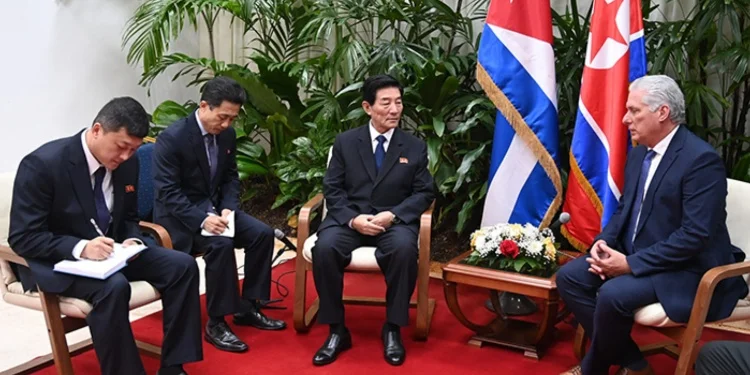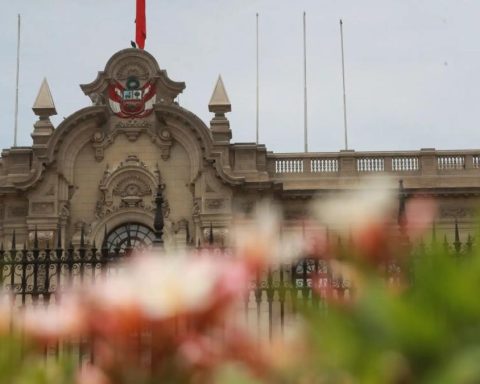Although it is a promise that has been made to the regions for more than 30 years, in order to guarantee that there is true regional autonomy and the development of cities and departments is generated according to their needs and characteristics; Every time the General Participation System is discussed, the country enters into a debate that seems to have no end and that for now, The only thing it has achieved is to stop the transition established in the 1991 Constitution.
Although it achieved a large part of its approvals outside the radar and the public agenda, in recent weeks there has been a lot of talk about “Legislative Act Project 437 of 2024 Chamber – 018 of 2024 Senate”, which seeks to increase transfers for participations from the Central Government to the regions, from the 22% that is today to the 46% that is stated in the Magna Carta, generating alerts due to its fiscal impact.
More news: After five days of mining and peasant strike, negotiation tables do not reach agreements
Being a legislative act, that is, a mechanism by which it reforms, adds or repeals any text in the Political Constitution, by the Congress of the Republic, this project needs eight debates, of which it has already completed five and is on the verge of its last review in the Senate and from there it will go to two more debates in the House of Representatives, where it is predicted that there would not be much resistance.
Meanwhile, the official position from the Casa de Nariño has had two moments, one in which National Planning and the Ministry of Finance said that it did not have fiscal support and according to legislative sources there was resistance and another, led by the Ministry of the Interior, where it was made clear that President Gustavo Petro supports the initiative and asked to seek consensus to move it forward.
Not all Colombian homes currently have drinking water.
Luis Lizarazo
It has not been explained well
In dialogue with Portafolio, Daniel Castellanos, advisor to the Ministry of the Interior, stated that to better understand the scope and objectives of this draft legislative act, led by Senator Ariel Ávila, it is necessary to take into account which consists of two parts and so far only one has been talked about: the economic one.
“The first part is a reform of the general participation system and is what national attention has focused on, which is the redistribution of the nation’s resources to the territories. But there is a second part, which is the issuance of a new powers law that redistributes the responsibilities of the nation, the departments and the municipalities,” indicated this official.
For Castellanos, it is not correct to say that the reform of the General Participation System It will lead the country towards a fiscal disaster, as even the Autonomous Committee of the Fiscal Rule itself has warned, since by changing the distribution of resources, the same is also done with the responsibilities that the territories must assume regarding the use of that money. .
Also read: Colombia would have very little time to implement the pension reform
“At this moment, the General Participation System has three main focuses, which are education, health and drinking water and basic sanitation. In these issues, the discretion of the territories is very low, in reality the territories are practically like payers in these issues, but they cannot make decisions, for example, to build a school with those resources, because those resources go to certain destinations. specific,” he said in this regard.
If the changes proposed by the reform are applied, Castellanos assures that the resources that the territories receive through the SGP “will have broader uses, although the priority for education, health and drinking water will continue to be maintained, but that they can use them on other topics, they can use them fundamentally to the construction of infrastructure that is essential for territorial development.”

Congress.
THE TIME
On the other hand, regarding the capabilities of the departments and municipalities to manage their own money, the spokesperson for the Ministry of the Interior noted that “there will be some to whom powers can be transferred more quickly than others. Those who are more qualified could receive the skills more quickly, those who are less qualified should take a little longer.”
Daniel Castellanos closed by saying that in his concept, the 10 years established by the draft legislative act are sufficient for a correct transition, although he indicated that there is still much to debate and adjust in the processing of this proposal.
Effective transition
Recently the Ministry of Finance reported that the reform of the SGP will go hand in hand with a draft law on powers that allows the transfer of functions and guarantees fiscal sustainability; which for some analysts is a guarantee, since the country is not willing to put its fiscal stability at risk.
You may be interested in: Petro opposes signing new oil contracts: he assures that ‘they bring death’
In this regard, Henry Amorocho, professor at the Universidad del Rosario, stated that the reform should include specific figures on the expenses that the departments and municipalities would assume, since basing it only on a percentage lacks practical foundation and in its concept, The public administration must work with real figures to guarantee fiscal sustainability.
“It should not go ahead because it does not have financial viability, but we must not ignore that the project politically has a lot of strength in Congress and in fact with all these things it is still there, it is still alive and well, it is still being discussed. It is important that in the debates that follow, it is determined that the project will either be archived or move forward, but that if it does move forward it will definitely not be done on the basis of a percentage,” stated Amorocho.

Colombian pesos
iStock
Meanwhile, for José Manuel Restrepo, rector of EIA University and former Minister of Finance, Everything must start from the recognition of the debt that Colombia owes with the decentralization process, although it makes it clear that not everything must be money, but also responsibilities and effective administration of those resources.
“The way it has been proposed in the legislative act that is being debated is deeply irresponsible, because the only thing it generates is an unmanageable fiscal burden, unviable for the Nation, to the point of leading to a deficit of more than 10% and a debt of more than 71% violating the fiscal rule, then clearly the path is not that, it is not even a path through a transition,” explained Restrepo.
For these experts, the debate should focus on fronts such as reducing the size of the State so that the Central Government lowers its cost burden; the transfer of functions and responsibilities to territorial entities and the creation of an effective transition process that places the well-being and development of the regions as its center.


















